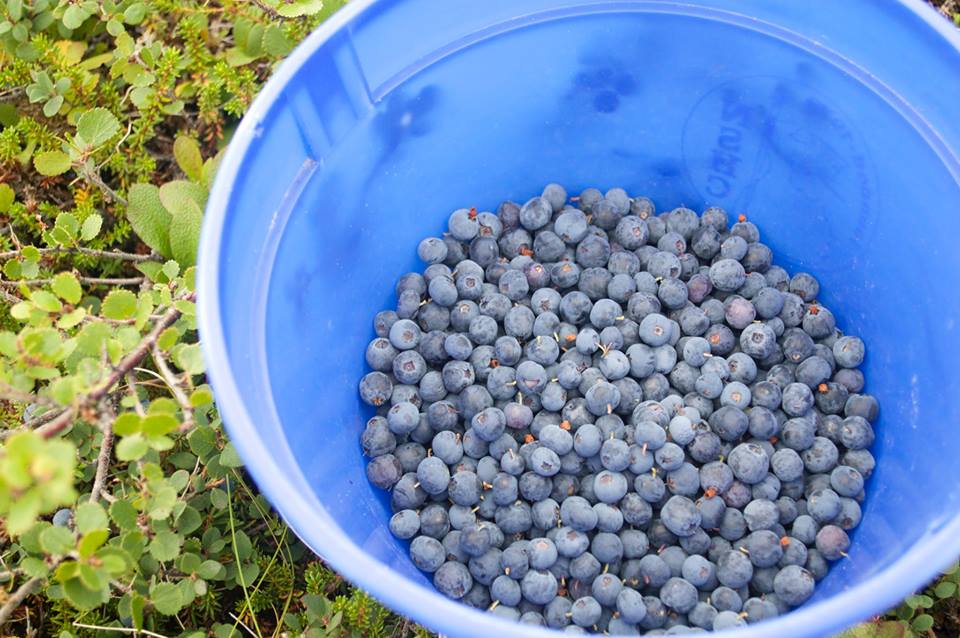Blueberries across the state are blooming later than normal this year, and Alaskans are growing eager to start berry picking. Blueberries are usually ready for harvest by the last week of July, although many areas across the Norton Sound are still seeing unripened berries.
Across Western Alaska, subsistence gatherers harvest gallons of bog blueberries, crowberries, low-bush cranberries, and salmonberries. These berries are commonly used to make jellies, desserts, or to enjoy by themselves. For many, berry picking is an annual tradition that holds strong cultural importance. The activity of picking berries typically involves the whole family, actively passing down traditional knowledge to younger generations.
Bog blueberries are also important to life stalks such as ptarmigans who feed off blueberry plants before they are ripe. In interior Alaska, the berries are heavily consumed by black bears. While blueberries may not hold a significant role in the food chain, they hold considerable importance in subsistence living.
Blueberries show inconsistency in their growth locations; some years they thrive abundantly, while other years, their growth is not as plentiful. The late blooming of blueberries in the region can be attributed to several factors such as weather conditions, temperature, moisture of the soil, and overall environmental changes. An ideal environment for blueberries provides good drainage, is moist but not wet, and prefers sunlight. In Nome specifically, this summer season has had more clouds and rain than sunlight.
While blueberries are late to blooming, salmonberries have been plentiful. Unlike blueberries, salmonberries thrive in shaded forests, stream sides, and woodlands. The flowers produced in the early blooming stages provide nectar sources for bees and other insects. Salmonberries resemble a raspberry but are bright orange. The berries are harvested and enjoyed frozen, canned, or made into jellies.
In the Arctic, residents express concerns about a limited harvest window for berries before they freeze. Frozen berries not only lose their taste but can also make the preservation process more challenging. Meanwhile, Western Alaskans persist in gathering buckets of vibrant orange salmonberries, ensuring their preservation of berries for the winter months.
For countless Western Alaskans and throughout the entire state of Alaska, berry picking stands as a way of life. This practice not only provides a valuable source of nutrients throughout winter months but also serves as a means of passing down cultural practices, and techniques.
Photo at top: Bucket of blueberries from August 14th, 2013





